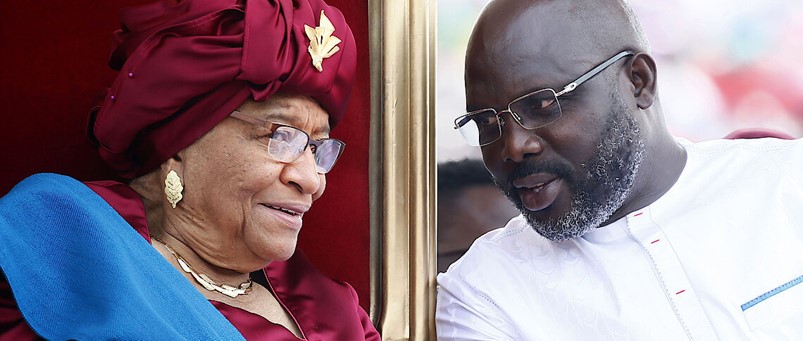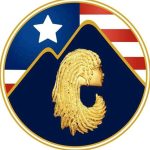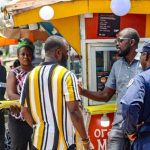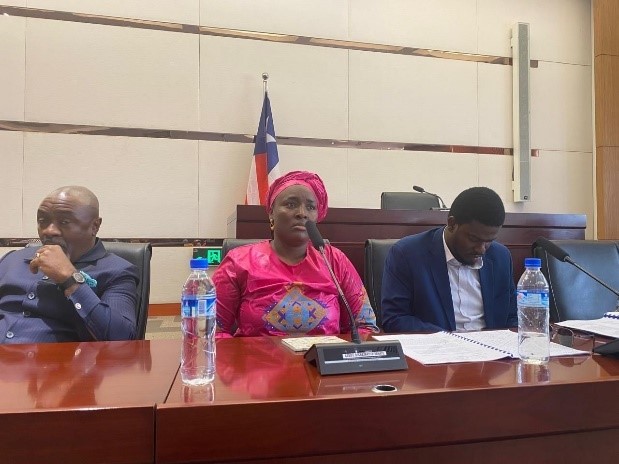Today, August 18, 2023 marks exactly twenty years since the Accra Comprehensive Peace Agreement (ACPA) was signed, serving as the final peace agreement in the second Liberian civil war. It was signed on August 18, 2003 in Accra, Ghana, and was created following the signing of a ceasefire agreement on June 17, 2003 and “intensive back-door negotiations” beginning on June 4, 2003 in Akosombo, Ghana.
The Agreement called for the establishment of a post-war two-year transitional government (National Transitional Government of Liberia) which would consist of 76 members: 12 each from the three warring factions; 18 from political parties; seven from civil society and special interest groups; and one from each of Liberia’s 15 counties. The warring factions, the opposition parties and civil society groups agreed to share ministerial portfolios and employment opportunities in the cabinet and parliament and elections were to be held no later than 2005.
The peace agreement covered a broad range of intended reforms; committing to a human rights inquiry through a truth commission, and vetting of the security forces on human rights grounds. Former Nigerian Head of State, General Abdulsalami Abubakar, facilitated the negotiations that led to the agreement.
On August 11, 2003, President Charles G. Taylor would leave Liberia for Nigeria for what he termed “peace sake” and turnover power to his Vice President, Moses Z. Blah, who would steer the affairs of the nation until the National Transitional Government of Liberia (NTGL) came to effect in October 2003.
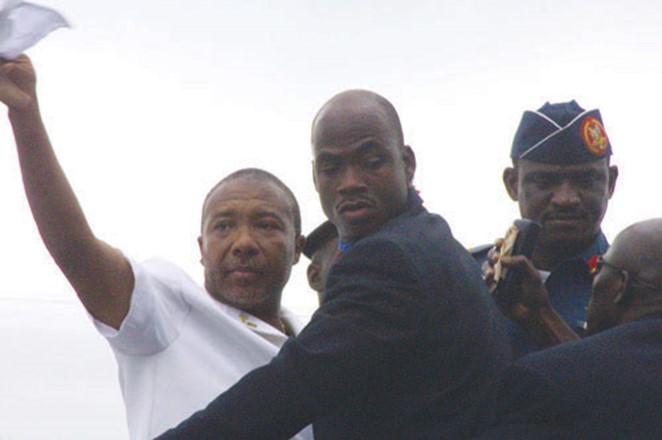
Charles Gyude Bryant headed the NTGL and led the country to its first post-war election. On October 11, 2005, twenty-two (22) candidates contested the presidency, with George M. Weah, Ellen Johnson-Sirleaf and Charles W. Brumskine being considered the favorites. The election went to a run-off on November 8, 2005 between Sirleaf and Weah, and Sirleaf was declared winner.
The election would set the pace for the peace Liberians enjoy today, with the international community continuing its democratic oversight, economic liquidation and human capacity building. In 2008, Liberia was considered among the Heavily Indebted Poor Countries (HIPC) and the World Bank would waive its debt. During the same year, the first by-election would be held in Montserrado County.
The second presidential elections would be held in 2011, and incumbent President Sirleaf would win in a controversial run-off which the rival party, CDC, boycotted due to alleged electoral fraud. Announcing the results of the first round of the election, the then Commissioner of the National Elections Commission (NEC), James Fromoyan, would announce Congress for Democratic Change (CDC) at first place and Unity Party (UP) at second place, but would revert on the statement and later re-announce UP at first place and CDC at second. Also, on the eve of the run-off, while CDC partisans were parading the streets, a security personnel would shoot in the crowd, leaving one person dead. This, in addition to other complaints, led to the CDC boycotting the run-off election. However, the run-off still went on as planned and Sirleaf won landslide. NEC Commissioner Fromoyan reportedly fled the country after announcing the results of the run-off election for fear that he would be hunted.
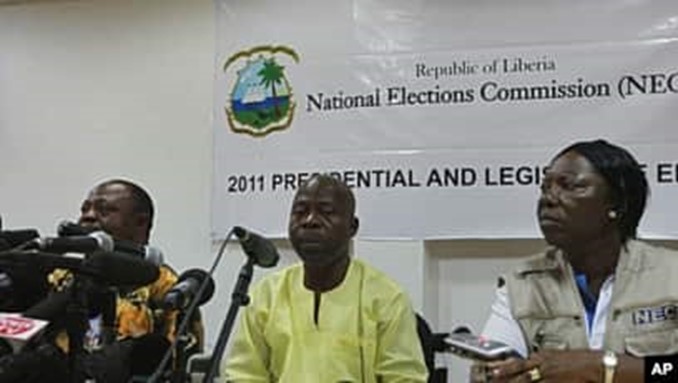
With all these troubling situations, Liberians still maintained the peace and stability of the country.
Another troubling situation was observed when the country was engulfed with the deadly EBOLA epidemic in 2014—a year the country would conduct the midterm senatorial elections. President Sirleaf would be caught between the scissors to either risk the lives of the population to conduct the election or postpone it to another time when it would be safe to do so.
At first, rumors of postponing the election were heard, but were strongly contended on the basis that postponing the election would incapacitate the bicameral Legislature, making it dysfunctional and necessitating an interim leadership. The initiative of arranging an interim leadership was being planned by several influential Liberians, home and abroad, and was headed by the former Auditor General of the Republic, John Morlu.
It can be recalled that the National Chronicle (now Hot Pepper) reported the story as it unfolded, in addition to a story involving the National Security Agency (NSA), then headed by President Sirleaf’s son, Fomba Sirleaf, and a group of South Korean investors who had come to the country on a business trip. The Koreans were picked up by NSA operatives while coming out of the International Bank (IB) on Broad Street and taken to a place on the Old Road, where they were harassed, intimated and their US$247,000 they withdrew from the bank confiscated. On August 14, 2014 the National Chronicle was shut down by heavily armed ERU and PSU officers. Which one of the stories the paper was shut down for still remains a mystery.
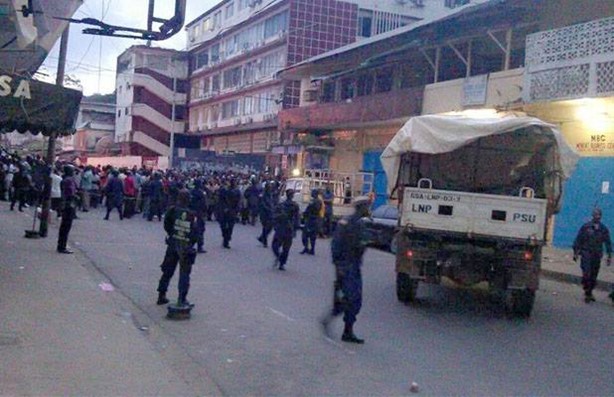
Fortunately, President Sirleaf would agree to conduct the election, and the results were peacefully accepted, bringing to Senate George M. Weah, Prof. Albert Chie, Prince Johnson (second term), etc.
Again, Liberians jealously protected the peace, but with the help of the United Nations Mission in Liberia (UNMIL).
2017 would come and become the first litmus test for the country’s democracy—President Sirleaf’s two terms had ended and the helm of power needed to peacefully transition from her to another person. The election was heavily contested for by the ruling Unity Party (UP), Coalition for Democratic Change (CDC), Liberty Party (LP) and the Alternative National Congress (ANC). At the end of the first round, the LP would claim electoral fraud and pursue a legal process. However, a common ground was found and the LP would let go, in order for the run-off to be conducted between the CDC and UP. At the end, the CDC was announced victorious, and President Sirleaf would successfully turnover power to President George Manneh Weah—a case that could only be traced as far back as 1944 when President Edwin Barclay turned over power to President William V.S. Tubman, an interval of forty-four (44) years.
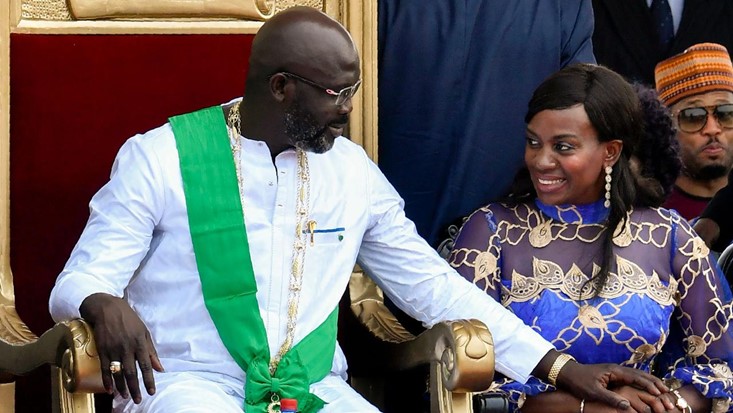
Again, Liberians protected the peace. However, UNMIL shortly left the country, leaving the security of the state in the hands of the national security apparatus: Liberia Immigration Service (LIS), Liberia National Police (LNP), Armed Forces of Liberia (AFL), National Security Agency (NSA), Executive Protection Service (EPS) and the Liberia National Fire Service (LNFS).
It is almost six years since the historic transition, and elections are to be held on October 10, 2023 (barely two months from now), with the safety of the state squarely at the hands of the state security.
There have been several incidents of electoral violence, causing fear for safety of the state during the election and the continuation of the peace and stability.
As the country celebrates twenty (20) years of peace today, the citizens are being reminded about the importance of maintaining the peace and stability of the country before, during and after the election.

